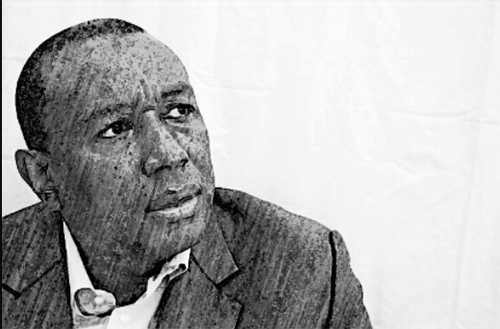Lawrence Kamwi
Among the signs that have caught my eye in the centre of Kuala Lumpur is one that boldly advertises Covid-secure offices. It is a reminder that, while the employee must still strive to retain a positive mindset and remain employable, managers and leaders bear the responsibility of addressing and ameliorating fear and uncertainty.
Earlier in the year, a Namibian human resources expert aptly summarised this mood by sharing a chart drawn by financial services firm, Alexander Forbes, on the hierarchy of employee needs. These include basic needs, well-being, community and connection, and appreciation. At the apex of the chart is purpose, passion, and fulfilment.
Basic needs cover access to a safe working environment, bathroom, fresh air, and appropriate rest and food breaks.
Since the unforeseen global escalation of the coronavirus pandemic in March last year, the survival strategies adopted by virtually every country were unprecedented. Today, it goes without saying that, while the pandemic is subsiding, with economies firmly on the path to fully reopening, companies still face hardships.
A report by human resource consulting company, Right Management, notes that “with 22.8% of organisations across surveyed industries reporting a temporary closure of trading due to the pandemic, many organisations need to increase output following this sustained period of operating below optimal capacity.”
Because employees may have felt disconnected from their organisations, derailed from their goals, and certainly concerned about health and safety, it is not surprising to see increasing calls for empathy in the post-Covid-19 workplace.
The management consulting firm, McKinsey Consulting, reports that “in a recent study, 50% of the respondents rated an empathetic approach to workload balancing as a top factor in how favourably they viewed their organisations during the pandemic.”
The report further notes that “an organisation mired in collective fear and focused on control will not unleash the creativity and innovation necessary to navigate a crisis and emerge healthy on the other side.”
It has been argued, with justification, that empathy is a skill, which is needed more than ever before. This is because planning for the long term in an environment characterised by uncertainty is an exercise in futility.
The last year has harshly reminded organisations to guard against distractions, poor resource allocation, ineffective communication, stress and complacency, and weak teamwork.
I have previously associated the term “human factors” with matters related to aviation. I wish to suggest that it should equally apply to other areas where mistakes of both commission and omission are inevitable. Studies show that the physical and mental states of a person affect his or her performance on the job.
The isolation, loneliness, self-doubt, and fear, which marked the last year, affected the general mental health of employees.
A mistake is defined as an incorrect action, a forgotten check, negligent performance or bad decision. Thus, human factors are designed to foster a culture of safety, promote a learning environment, and encourage a community where unintentional errors are reported without fear of retaliation.
The empathetic workplace is, therefore, a safeguard against the culture of risk secrecy, which has led governments, corporations, and other entities to try and hide evidence when things go wrong.
According to the Australian Radiation Protection and Nuclear Safety Agency, the field of human factors has four main goals. These are “enhancing safety, reducing error, enhancing comfort, and increasing productivity.”
In encouraging the promotion of empathetic relationships, I note that there is a need for more risk competency rather than risk secrecy. Things can go wrong, things do go wrong, in life. The Roman philosopher, Cicero, observed, “it is in the nature of man to err.”


